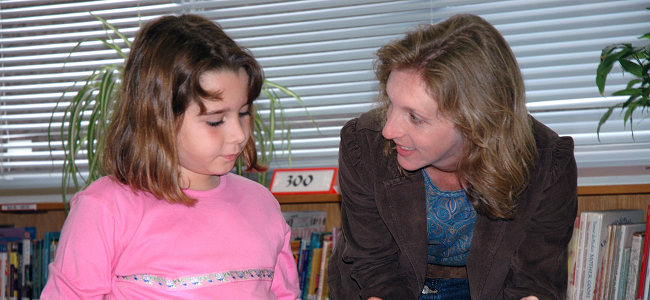That’s the ideal, of course. Good teachers that have good relations with students and their students’ parents teach better. Young learners supported by both parents and teacher learn better. Parents valued by the school parent better. The golden triangle sees a community empowered by communication, the school a vital institutional function at the heart of a locality.
Unfortunately, nothing’s ever so simple, especially when it comes to ensuring that the lines of communication between parents and the school are kept wide open. While everything points to a sea change in a culture that no longer sees the school gates as where parenting stops and schooling starts, there remain significant structural, cultural and logistical barriers to ensuring positive and constant communication between the two:
- Parents may be overwhelmed / feel unsupported by schools as public institutions.
- Parents’ impressions of a teaching staff and school management hierarchy that appears neither to reflect or/nor understand the linguistic / cultural diversity of the communities from which their children come.
- Parents’ own experiences of schools leave them feeling at best ambiguous toward - at worst suspicious of – schools. In addition, ideologies vis-a-vis the role of the school, child development and the importance of performance related scores will impact on communication.
- Teacher training rarely includes modules aimed at learning how to communicate effectively with parents.
- Opportunities for parental involvement proliferate in the lower years, and tend to peter out the older their children get.
Clearly, the above is a collection of possible reasons for poor relations. They do not apply to every school or local community. The solutions to some lie not just at the door of individual schools, but also at those of community leaders, of local authorities and of national policy makers.
Even so, there is much that schools can do – and are doing - to ensure that the parents feel that they do have a stake in their children’s education, and that raised parental involvement sees ‘immediate and positive’ results. So much so, say David Dwyer and Jeffrey Hecht (as far back as 1992), that ‘almost no examples exist of school-sponsored programmes of any nature NOT [their emphasis] succeeding in their intended goals’. Communication is vital, and understanding how to communicate the next step. I think of there being three interrelated opportunities for communication: ‘overall’ or ‘whole school’, ‘one-way’ and ‘dialogic’:
- So, by ‘overall’ or ’whole school’, we mean everything about a school that communicates its ethos and practice. Schools can lock out or they can welcome. Essentially, schools that welcome their parents in - and that positively involve themselves in sponsoring parent programmes - create in the community a sense of ownership in the education system, thereby encouraging participation both in the classroom and more generally, the end result of which makes for happier and, therefore, more effective learning environments.
- Clearly, by ‘one-way’, we mean the kind of one-way forms of (largely) written communication that allows schools to inform parents of anything that might help their child. These are traditionally, newsletters, reports, result compilations and home-school liaison books. With technology, the opportunity for new, more efficient and less wasteful forms of communication proliferate, with apps, software and texting leading the way.
- However, new or not, whatever the form, the language used is key. As the fact of an ongoing publically-funded piece of behaviourist research on the efficacy of texts as ‘nudges’ actually existing shows, it’s not so much that there’s anything wrong with one-way technologically assisted / led communication, but rather that the content should prove instantly effective. One-way communication requires that the communicator communicate in a way that interests, that is relevant and understandable – which in the case of schools with children whose parents do not speak English as their first language means doing so in a different language. ‘Lost in translation’ or ‘tech fatigue’ is not an option.
- Finally, ‘dialogue’. While information is important, it’s conversations that build relationships. Here’s where teachers’ interpersonal skills come into play. Parents need to be heard. As any newly-qualified teacher knows, making that concerned phone call, or having a face-to-face outside of the usual termly teacher-parent meetings, is a nerve wracking business and worth it: Establishing good working relations with parents is worth its weight in report cards. In order to do so, teachers – class, tutor or pastoral - need to find the opportunity to communicate (on the phone or face-to-face) regularly, both formally and informally, and in ways designed to put parents at ease.
All of which I know makes perfect (common) sense, so apologies for the bleeding obvious, and for the hectoring tone, but if we’re going to talk about triangles, then let’s have ‘em, and if we’re going to call them golden, then let’s make sure they are. It’s all for the very best.
How do you manage parent/teacher communication? Let us know in the comments.


















